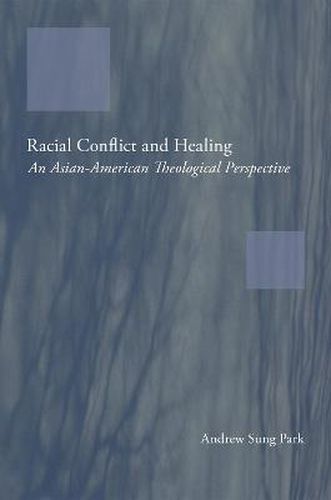Readings Newsletter
Become a Readings Member to make your shopping experience even easier.
Sign in or sign up for free!
You’re not far away from qualifying for FREE standard shipping within Australia
You’ve qualified for FREE standard shipping within Australia
The cart is loading…






This title is printed to order. This book may have been self-published. If so, we cannot guarantee the quality of the content. In the main most books will have gone through the editing process however some may not. We therefore suggest that you be aware of this before ordering this book. If in doubt check either the author or publisher’s details as we are unable to accept any returns unless they are faulty. Please contact us if you have any questions.
A Korean theologian approaches the issue of racial conflict-including discrimination between minority communities-and constructs a theology of seeing that aims to heal the ruptures of racism. As ethnic tensions continue to simmer and occasionally erupt, immigration and affirmative action laws are hotly debated in every ethnic minority: African Americans, Hispanic Americans, Native Americans-even Asian Americans (the so-called model minority) struggle in the racially-charged atmosphere of contemporary America. In the aftermath of the Los Angeles riots of 1992 and the ensuing violence against Korean Americans, Andrew Sung Park seeks a theological model that will help transform a society of oppression, injustice, and violence into a community of equity, fairness, and mutual consideration. Park emphasizes that such a transformation does not and cannot begin only with good intentions, but must be grounded in an understanding of all the socio-economic and cultural issues that lead to oppression and tension. Using the Korean term han to describe the deep-seated suffering of racial oppression, he then suggests resources for understanding and healing in both Christian and Asian traditions. Part I of Racial Conflict and Healing describes the status quo from a Korean American perspective, including discrimination against ethnic minorities and the discrimination they inflict on one another. In Parts II and III, Park suggests that American society as a whole needs a superordinate vision to form a unified community. Park argues that our profoundly individualistic society must learn to understand an idea of self that is formed through relationship with others. Finally, in Part IV, he presents a theological model, a theology of seeing, as a way to genuinely understand the other and to promote healing within our society.
$9.00 standard shipping within Australia
FREE standard shipping within Australia for orders over $100.00
Express & International shipping calculated at checkout
This title is printed to order. This book may have been self-published. If so, we cannot guarantee the quality of the content. In the main most books will have gone through the editing process however some may not. We therefore suggest that you be aware of this before ordering this book. If in doubt check either the author or publisher’s details as we are unable to accept any returns unless they are faulty. Please contact us if you have any questions.
A Korean theologian approaches the issue of racial conflict-including discrimination between minority communities-and constructs a theology of seeing that aims to heal the ruptures of racism. As ethnic tensions continue to simmer and occasionally erupt, immigration and affirmative action laws are hotly debated in every ethnic minority: African Americans, Hispanic Americans, Native Americans-even Asian Americans (the so-called model minority) struggle in the racially-charged atmosphere of contemporary America. In the aftermath of the Los Angeles riots of 1992 and the ensuing violence against Korean Americans, Andrew Sung Park seeks a theological model that will help transform a society of oppression, injustice, and violence into a community of equity, fairness, and mutual consideration. Park emphasizes that such a transformation does not and cannot begin only with good intentions, but must be grounded in an understanding of all the socio-economic and cultural issues that lead to oppression and tension. Using the Korean term han to describe the deep-seated suffering of racial oppression, he then suggests resources for understanding and healing in both Christian and Asian traditions. Part I of Racial Conflict and Healing describes the status quo from a Korean American perspective, including discrimination against ethnic minorities and the discrimination they inflict on one another. In Parts II and III, Park suggests that American society as a whole needs a superordinate vision to form a unified community. Park argues that our profoundly individualistic society must learn to understand an idea of self that is formed through relationship with others. Finally, in Part IV, he presents a theological model, a theology of seeing, as a way to genuinely understand the other and to promote healing within our society.